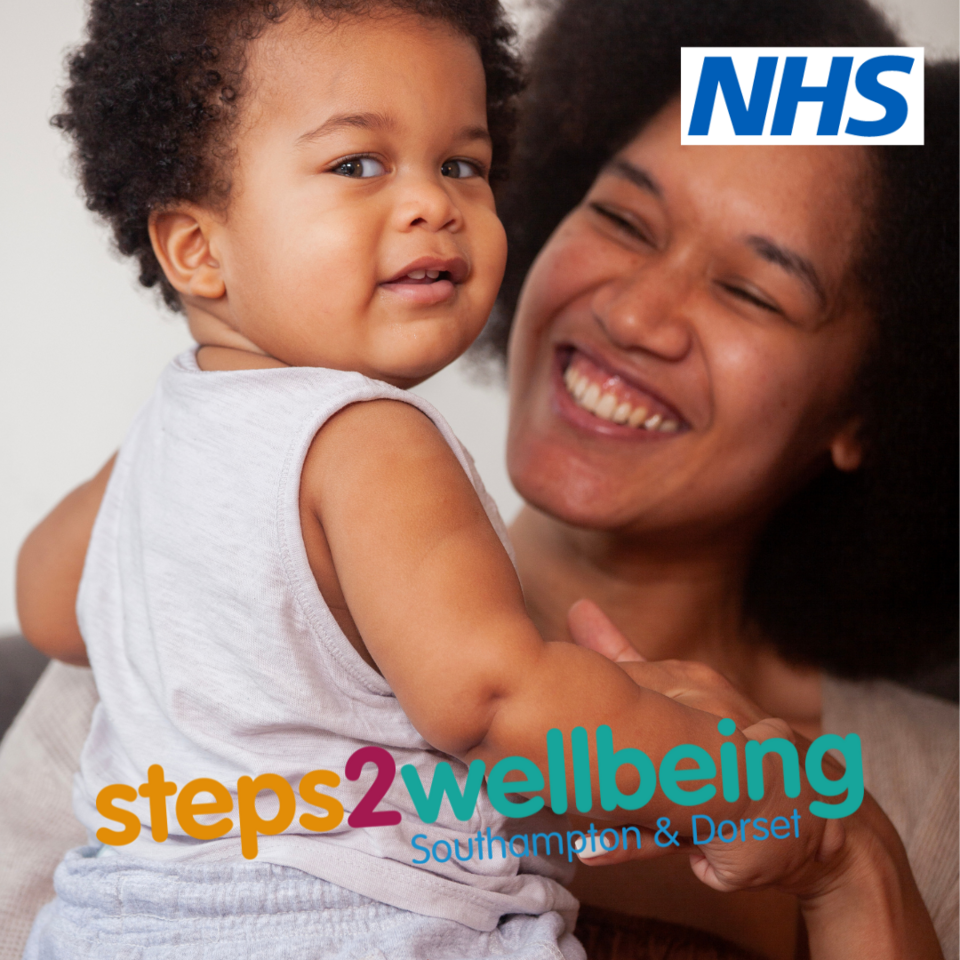If you are in distress, suicidal or despairing and need help now, click here to go our emergency support page.
Support for new parents in Dorset and Southampton City
At Steps2Wellbeing we understand that your mental health can be affected during pregnancy and after you have given birth.
Becoming a parent can be a very emotional and challenging time. Along with the joy and happiness of having a baby, it can make you feel down, stressed, or anxious.
Changes in your mood or the ‘baby blues’ are very common after giving birth, and there’s nothing to be ashamed of.
It’s important to get help as soon as you think you might be depressed to stop your symptoms getting worse and having an impact on you, your baby, and your family.
How can Steps2Wellbeing help new mums?
Our dedicated perinatal team run groups for new mums and dads that focus on using the principles of Cognitive Behavioural Therapy (CBT) to help you take control of your thoughts, feelings, and actions.
Steps4Mums
ParenTalk
MumsMatter
We prioritise treatment for pregnant people and those who have children under two years old.
You can sign up anytime without needing a GP appointment here or by calling us during office hours.
Is it the Baby Blues or Postnatal Depression?
Many women experience a dip in their mood the first week after giving birth.
Chemical and hormonal changes in the body can make women feel low, irritable, or anxious.
These symptoms are normal and should only last a few days.
Postnatal depression is a type of depression that many parents experience after having a baby. It can start any time up to a year after giving birth and come on suddenly or gradually.
It's a common problem, affecting more than 1 in every 10 women within a year of giving birth. It can also affect fathers and partners.
When you have postnatal depression, you may feel increasingly depressed and low. Looking after yourself or your baby may become too much.
It's important to get help as soon as possible if you think you might be depressed, as your symptoms could last for months or get worse and have a significant impact on you, your baby and your family.
Birth trauma
Giving birth puts tremendous physical and mental strain on your body and mind. Some parents tell us that their experience of birth was incredibly scary, upsetting and traumatising.
If you have had a traumatic birth, you may feel upset when thinking about it or avoid reminders of it altogether.
Although we can’t go back in time to change those events, we can help you to mange your thoughts and feelings.
Intrusive thoughts after giving birth
Some new mums can experience intrusive or unwanted thoughts during pregnancy or after giving birth. This can often be a symptom of Perinatal Obsessive-Compulsive Disorder.
Thoughts about hurting your baby
Fear of giving your baby a disease or contaminating
Fear of making the wrong decision for example about medical treatment or vaccinations
These thoughts can be upsetting and frightening, but it’s important to remember they are not your fault. Having an intrusive or unwanted thought does not mean you want to act on it or that you will act on it.
Increased anxiety during pregnancy or after birth
We might expect that on the journey to parenthood we become more anxious however this can sometimes feel like it becomes unmanageable or uncontrollable anxiety.
You might find you experience some of the following:
Racing thoughts, possibly about the future or about things you can’t control
Worries or fears about specific things such as childbirth or social situations like baby groups
Struggling to fall asleep
Changes to your appetite
Feeling like you need lots of reassurance
Avoiding things that you might have done previously or that you’d like to do because they make you feel worse
Noticing changes in how your body feels, for example; racing heart, feeling stressed or breathing differently.
How do I get help from Steps2Wellbeing?
New parents can access specialist perinatal support by self-referring to Steps2Wellbeing. You can sign up confidentially using our online referral form or by giving us a call.
Refer myself
